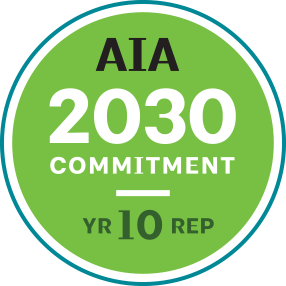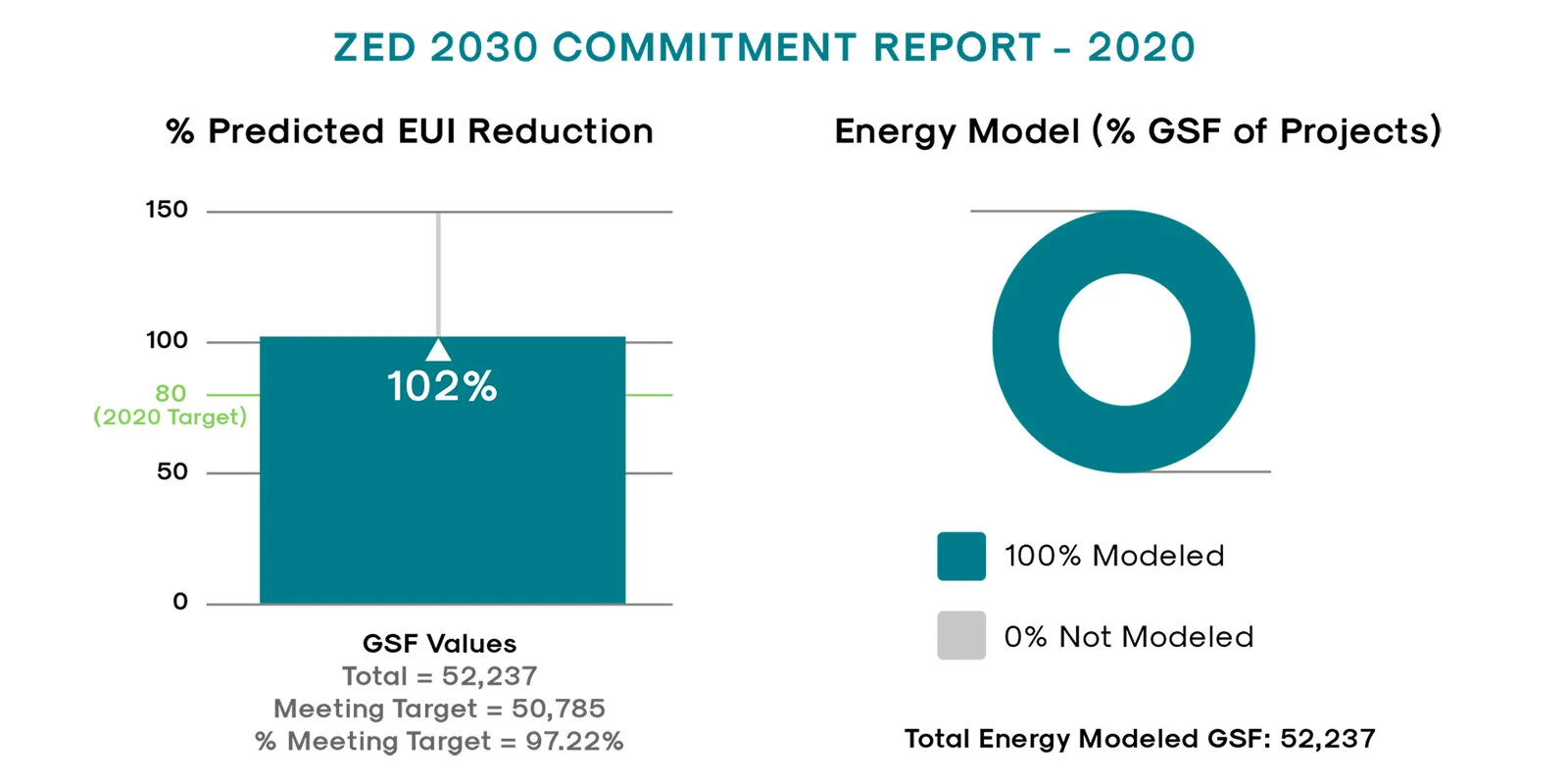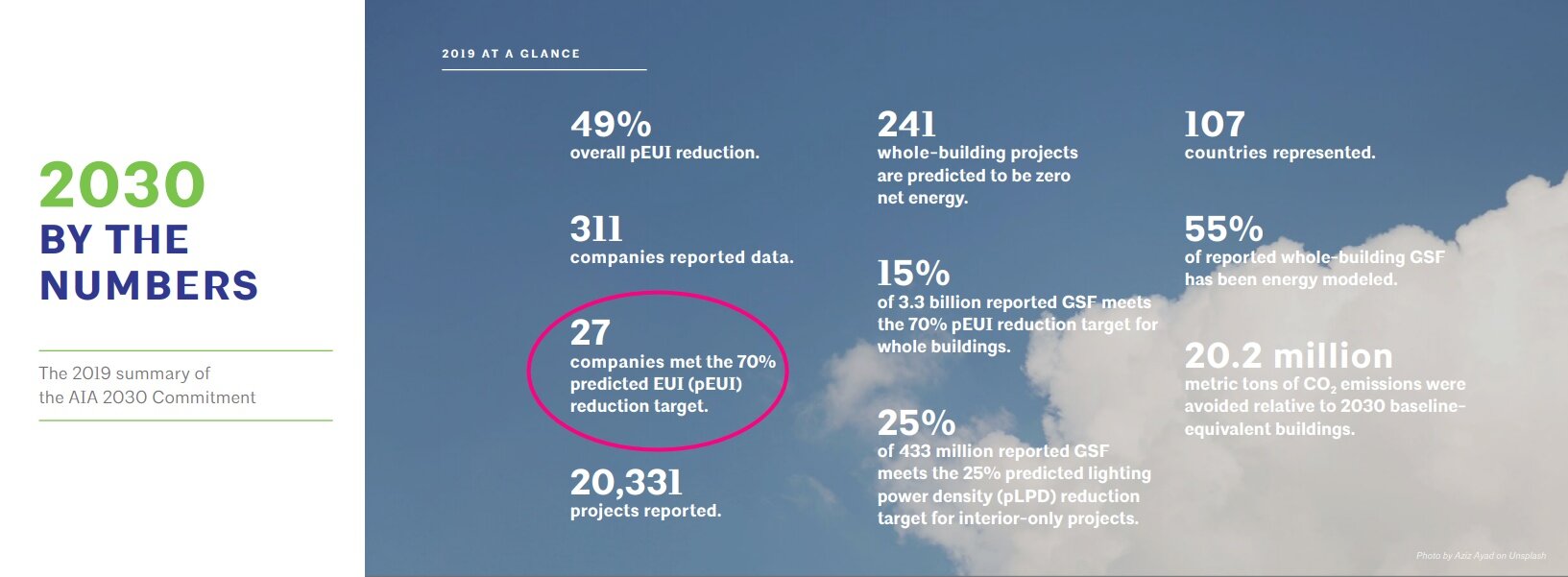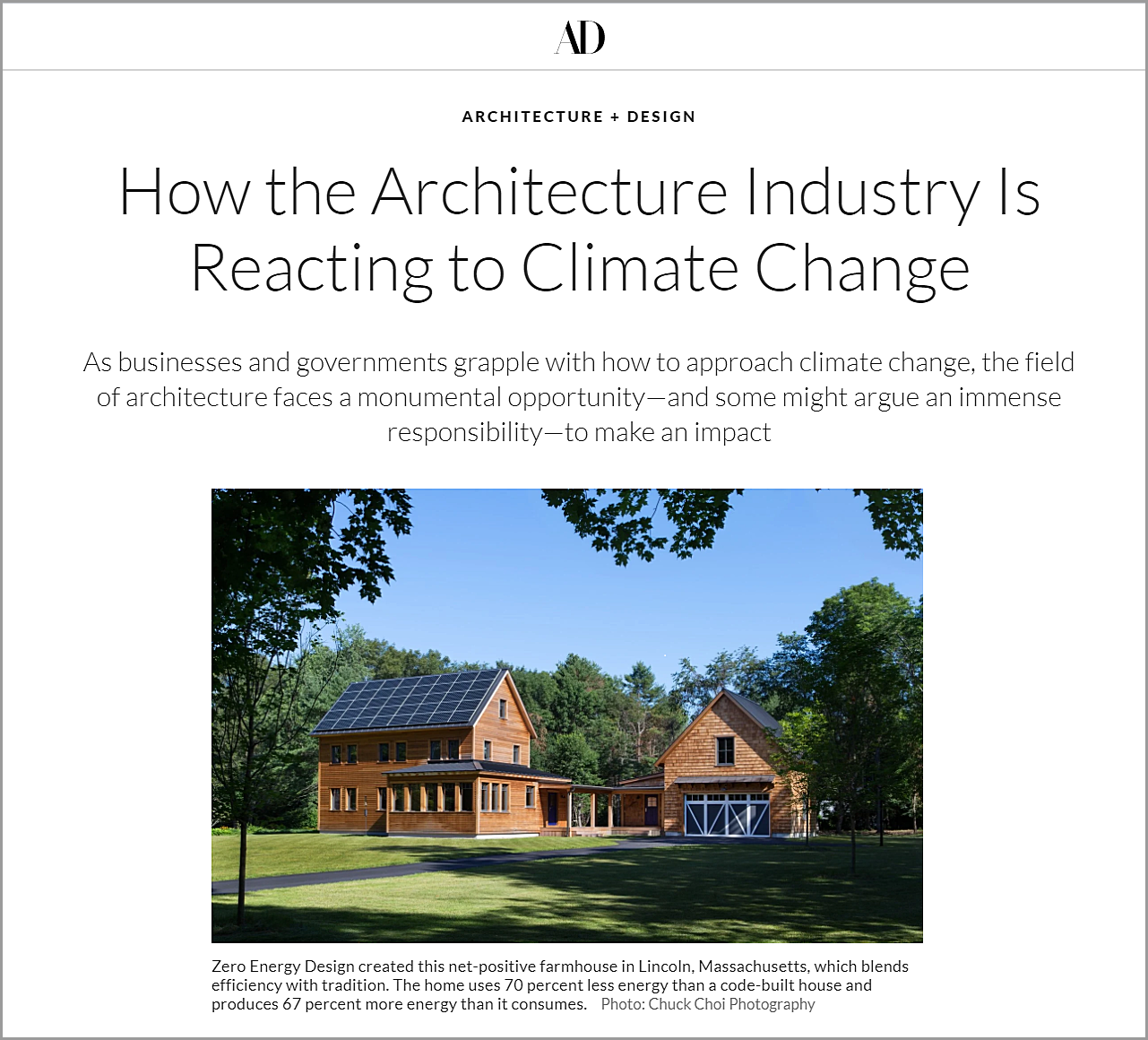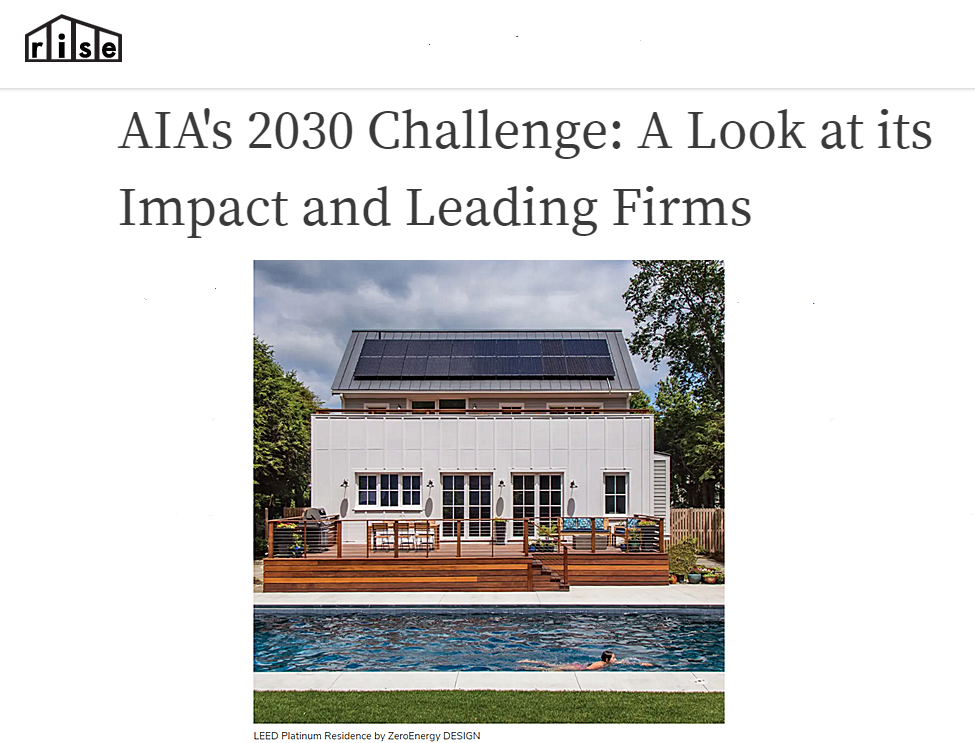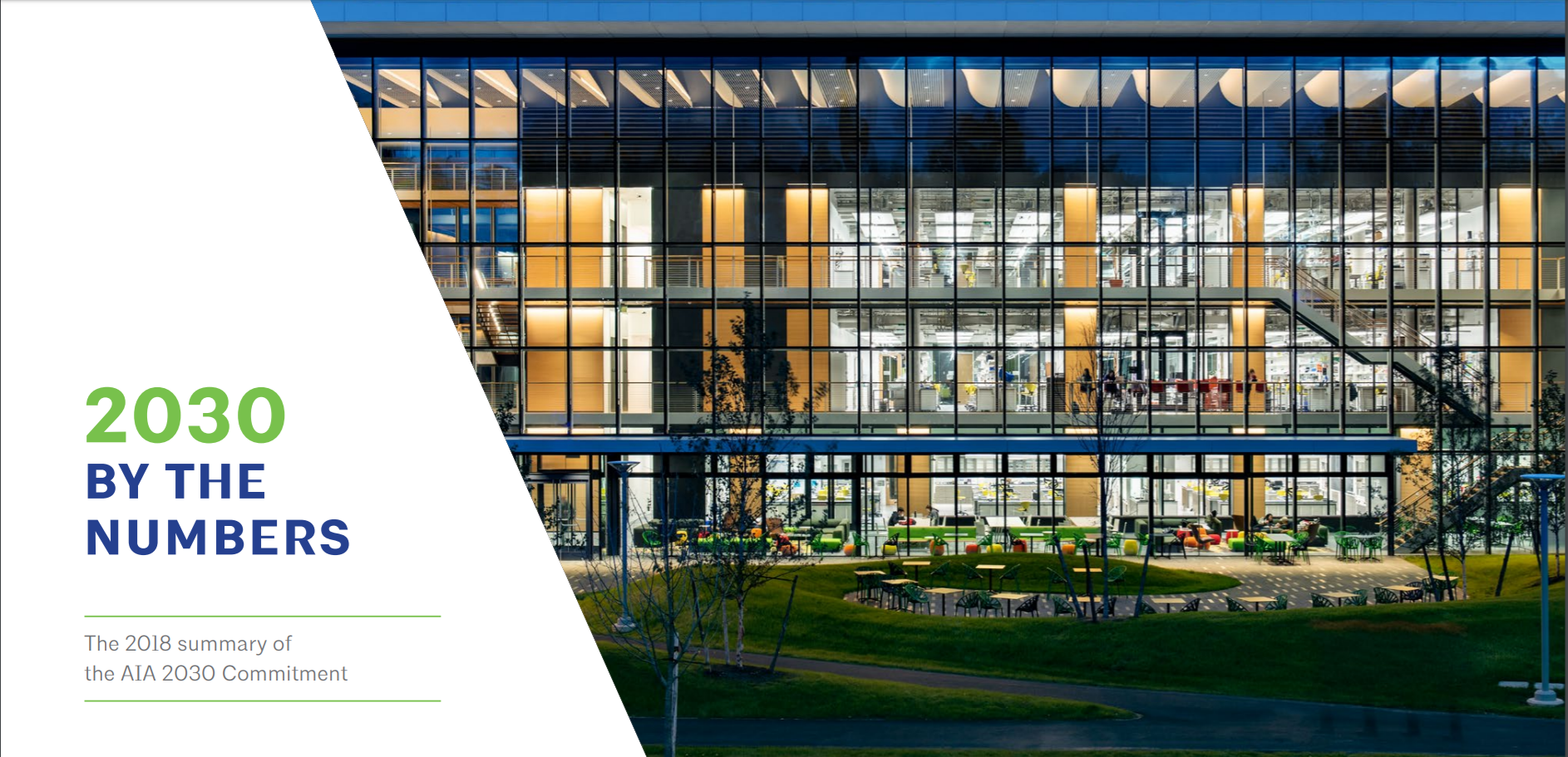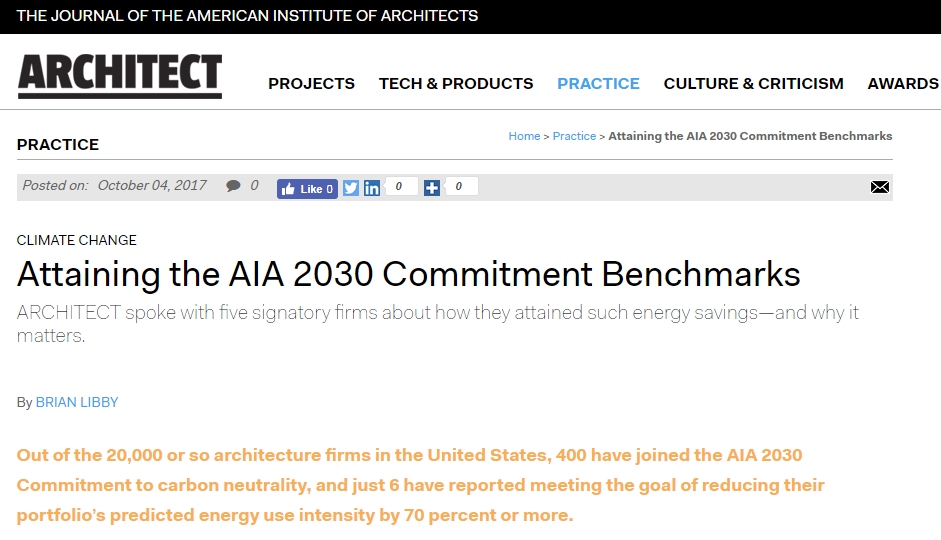According to the newly released 2020 Summary of the AIA 2030 Commitment report, ZeroEnergy Design is one of only 15 firms to achieve 80% or greater predicted EUI savings across their entire architectural portfolio. In 2020, 378 companies reported, representing 3.8 billion square feet across 102 countries.
For the tenth year in a row, ZED tracked and reported its energy data against the AIA 2030 Commitment and 2030 Challenge, each year exceeding the minimum thresholds. 2020 marked a significant milestone for the challenge, increasing the carbon reduction target from 70% to 80%.
Measuring Progress: AIA 2030 Report Summary for 2020
Over the course of 2020, ZED reported an impressive 102% reduction in pEUI savings across its entire architectural portfolio, outperforming the target for the 10th consecutive year.
The AIA 2030 Commitment program supports the AIA 2030 challenge, which calls for all new construction and major renovations to be carbon neutral by the year 2030 and provides architects, engineers, and owners a global platform to demonstrate action against climate change through energy-efficient design.
In 2020, the 2030 Commitment participants reported energy savings equivalent to carbon emissions that would be sequestered by more than 42.3 million acres of forest, or 34.6 million tons of CO2 emissions, in one year. Click below for the full report.

